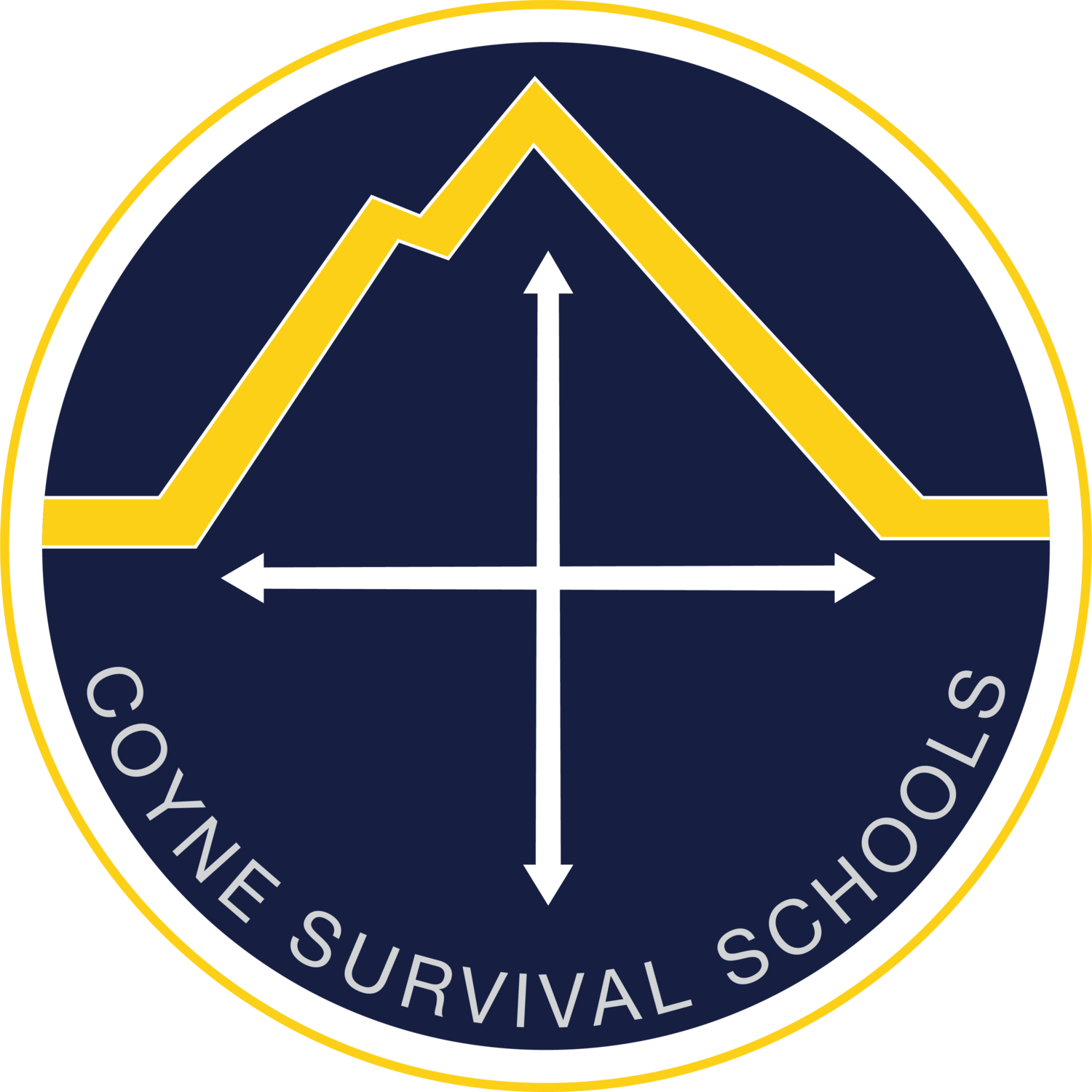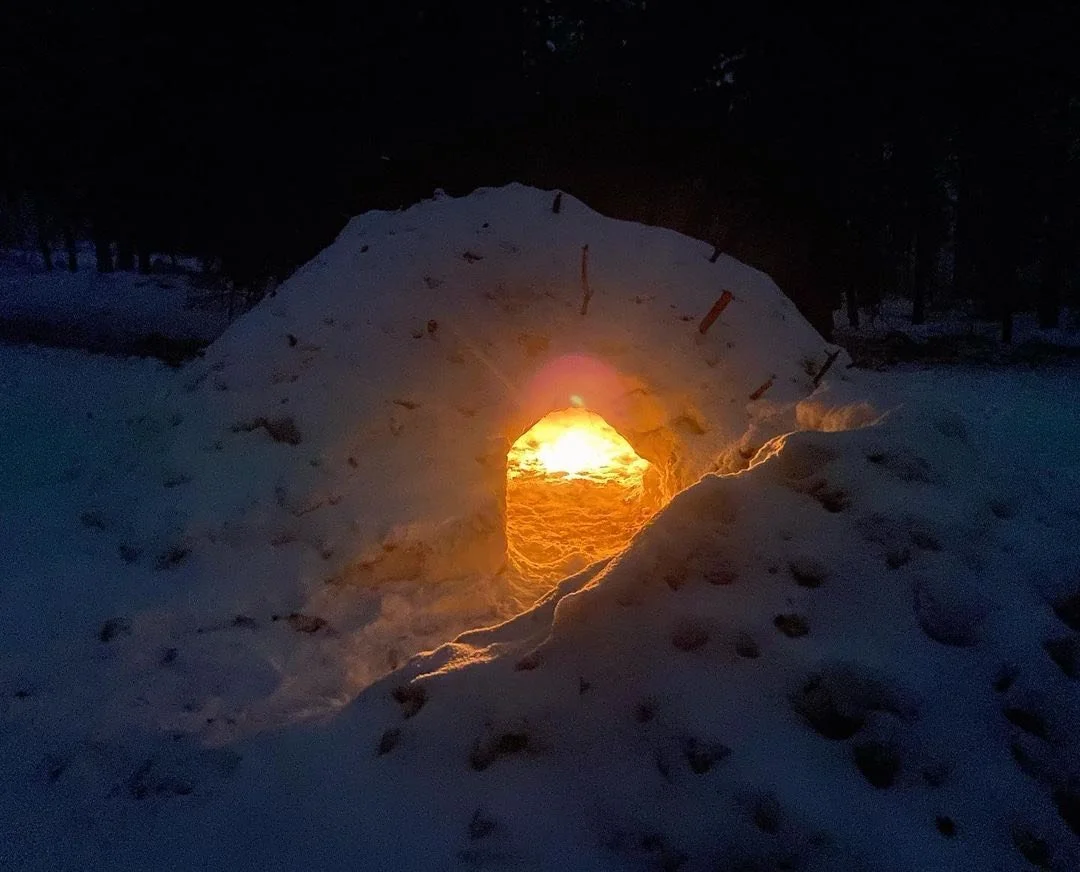"You safely and successfully trained personnel with various experience and operational backgrounds while far off trail and with only natural resources. Your attention to detail and proficiency allowed for all of the students to successfully complete the course"
-Commanding Officer, Marine Corps Mountain Warfare Training Center, 2013
Course Overview: The Frozen North
This course focuses is on making the student competent in extreme conditions; namely, the cold. This takes specialized instruction, specialized gear, and specialized methodology. Extreme cold maims and kills very quickly. If you are properly trained and equipped, however, these conditions can serve as a refuge- and even as an outdoor recreation playground.
Course Goals
This course focuses on the fundamentals, as you live and die by these when working in extreme conditions.
Course Curriculum
*Snow shelters: Students will learn to construct proper snow caves and quinzhees. Students will spend a night in a quinzhee (the shelter seen in the pic at the top of the screen) they build themselves.
*Cross-country skis/telemark: Selection and application. Students will learn the basics of selecting cross-country skis and skins, and learn to use them in the field. There will be a ski session. We provide the skis!
*Snowshoes: Selection and application. Students will learn how to select and use snowshoes. There will be a snowshoe hike. We provide the snowshoes!
*Crampons. How to step with camp-ons attached to your boots, and self-arrest techniques for falling on frozen inclines.
*Pulks/Gear sleds: Students will learn to pack and drag gear sleds (essential in arctic conditions) in the field. We provide the pulks/sleds.
*Emergency signaling: Students will learn and perform the most essential winter emergency signals for rescue.
*Cold weather clothing essentials. Learn to dress appropriately for cold weather conditions. This training is essential for arctic conditions; as the clothing is highly specialized and being underdressed can be deadly.
*Hypothermia: Recognition & Treatment. Did you know; allowing a victim of SEVERE hypothermia to even stand up on their own can stop their heart? Learn to identify thermal emergencies early, and to treat them effectively.
*Intro to avalanche awareness. Learn to recognize and avoid conditions suggestive of imminent avalanches.
*Water procurement and use. Did you know? Your hydration determines your blood volume, and your blood volume determines your ability to regulate body temperature. Learn the principles of extreme hydration.
Accommodations
Two nights will be spent in a shared cabin which is included in the cost, one night will be spent in a snow shelter you construct.
Check Out Our Gear Page For Tips
Logistics
Price
$1350 Per person
(10 Person Maximum)
2025 Dates
february 21-24
Upon booking you will automatically receive a receipt. This receipt contains a link to download all of your course attendance info, including gear requirements, driving directions, and more.
What to bring:
Nearly All Required Gear Can Be Rented At The Anchorage REI At Very Reasonable Rates: (907) 272-4565
A Winter PARKA Rated For 10 Degrees Fareignheight below zero (-10) or colder
A sleeping bag rated for -10F or lower
Trekking poles with snow “baskets” or ski poles (good trekking poles sometimes offer “baskets” which can be attached, so they can be used for hiking or skiing & snowshoeing. Trek brand offers these types of poles)
Avalanche shovel
An Ice Axe (only 1 is needed)
An unlined food-grade stainless steel water bottle ("Kleen Kanteen" brand bottles work great, larger the better)
Day pack (20-35L)
Warm thermals (wool is recommended)
Waterproof/breathable insulated snow pants
Insulated boots rated for -10F or colder
Crampons for your boots (crampons are spikes which attach to your boots for walking uphill on snowy/frozen mountain sides. These can also be rented at your local REI)
Snow goggles
MEALS ARE PROVIDED VEGAN AND VEGETARIAN MEALS ARE AVAILABLE AT NO EXTRA CHARGE, PLEASE NOTIFY US AFTER BOOKING, THAT WE CAN HAVE A PROPER SUPPLY COUNT.
Feel free to call us for advice on your gear.
Travel:
The nearest international airport: Anchorage, Alaska. We offer free pick up and drop off from Anchorage to the training location.
We pick up at the Anchorage visitors center (546 W 4th Ave) at 8am the day of the course. We drop off at the same location on the final day by 3pm. We strongly recommend not booking a return flight home for anytime before 5 pm of the final day (if you do intend to depart Alaska on the same day that the course ends).


